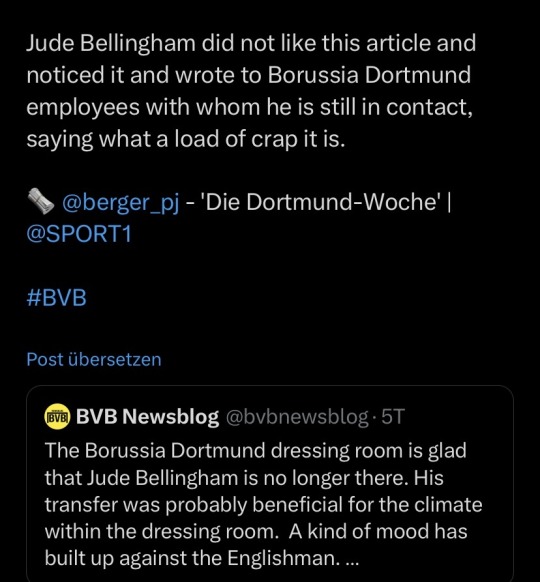#told you
Text
sometimes i think about the fact it's mike who's gonna kiss will cause will gave up already and he lost all hope for mike to love him back and i die a little everytime
#mike wheeler kisses will byers truthers rise#he wont last another season without giving him a smooch#the ga will lose their fucking shit#and we'll be like#told you#will byers#byler#stranger things#mike wheeler#stranger things s4#byler endgame#byler canon#byler tumblr
62 notes
·
View notes
Note
What if we put Iceberg in the microwave?
*Hears desperate screams from said researcher begging to get out moments later*

Oh noThis is dr Iceberg a minute before the second microwave situation
#scp#fanart#scp fanart#dr iceberg#told you#no microwaving guys#pre microwaving tag#I don't even know if he's scared or angry#maybe both
80 notes
·
View notes
Text

Good Omemes: told you! - Michael Sheen as Aziraphale (Good Omens, 2x02)
#aziraphale#michael sheen#good omemes#my gifs#well#i knew it#knew it#told you#i told you so#aha#good omens#good omens season 2
71 notes
·
View notes
Text
They said I was wrong. My theories were wrong. AHHHHGH

#TOLD YOU#TOLD YOU BRUH#jjk#jujutsu kaisen#sukuna#jujutsu kaisen sukuna#ryoumen sukuna#ryomen sukuna#jjk sukuna#sukuna ryomen#jujutsu sukuna
24 notes
·
View notes
Text
fucks me up how menelaus is the one who escapes the curse and agamemnon is there to witness it.
like everyone in the house of atreus (atreus down, because this is when the curse gets like ... re...cursed) is defined by an act of violence to a family member/loved one that is caused by or committed by them (i say this because thyestes is a grey area. he rapes his daughter which leads to her suicide so that's .... that's enough tbh. he sucks for that)
except menelaus.
and i mean an event that is well documented. that is recorded and that defines their life. examples: atreus killing his nephews and feeding them to his brother, agamemnon killing his daughter, aegisthus killing his uncle and then his cousin and orestes killing his mother. these are DEFINING moments in these characters stories. their stories are incomplete without them.
i added this point cause people will say: menelaus started the war (which he did in a way. i dont dispute that) but that's not his moment. menelaus is often lost in the narrative of the trojan war. that's not HIS moment if you will. (besides the iliad is about achilles, menelaus' moment wouldn't be in that).
menelaus' moment comes AFTER troy. when he's encouraged to kill helen. THIS will be his defining moment of violence that secures his place in this family and drags him down with them.
and he doesn't do it.
and i don't think he ever intended to. menelaus is so DISTANCED from the curse by this choice/decision that he doesn't. even. die. he never actually dies. never mind has a nice life, lives to a ripe old age, dies calmly in his bed etc. etc. he just doesn't die - now that just ain't the cursed house of atreus way.
now. here's where aga comes in. i think aga knew iphigenia was his 'moment'. like he knew once he'd done that. he was no better than his father and uncle etc. (i think it's why he goes downhill over the course of the war and we get a lot in the iliad about him refusing to go home empty handed. he didn't kill his daughter and throw himself on the sacrificial altar of this curse for NOTHING and also why he goes to death so easily in the tragedies yknow? he just walks into the jaws of death. knowing its coming. fully accepting it. and. honestly? believing he deserves it) BUT the possibility that he sees menelaus throw his moment away and refuse it.
i cannot imagine the peace that must bring agamemnon. to have protected this brother through shit after shit. through exile. atreus. thyestes. aegithus. a war. and then to see him separate himself from it all. aga sees that menelaus is no longer bound by all this. menelaus is going to be safe. and perhaps that's another reason he goes to death so easily. he has nothing left. he cannot rebuilt what he had with clytemnestra. as far as he's concerned orestes is dead and so is iphigenia. (elektra is locked up at this point im sure? im sure cly and aeg keep her prinsoner so he probably doesnt even know where she is) and menelaus is safe. there's nothing really left for aga at this point.
and aga and menelaus part on bad terms? they part on bad terms and never see each other again and their lives take such different paths? the story of these two brothers is something that is so personal to me.
#told you#doesnt do it cause he loves helen and helen loves him#cause yknow absurd unending possibility of LOVE
167 notes
·
View notes
Text

Micah 6:8 (NASB1995) -
He has told you, O man, what is good;
And what does the LORD require of you
But to do justice, to love kindness,
And to walk humbly with your God?
37 notes
·
View notes
Text
[Someone asked, so here it is. Oh, and if anyone else has any specific quotes they wanna see, feel free to suggest them by just asking]
(Father's Day, pt. 8, bonus)
Steph: B-Man, I got a gift for you.
Bruce: Really?
Bruce:
Bruce: This card just says, "Ha! You're not my dad!"
Steph: Wanna know why?
Bruce: Because I'm not-
Steph: Because you're not my dad!
#dc comics#incorrect quotes#incorrect dc quotes#batfam incorrect quotes#stephanie brown#bruce wayne#father's day#continuation#told you#that's all Steph would have done#because she thinks she's funny
22 notes
·
View notes
Text
Cavalier - Told You
11 notes
·
View notes
Text
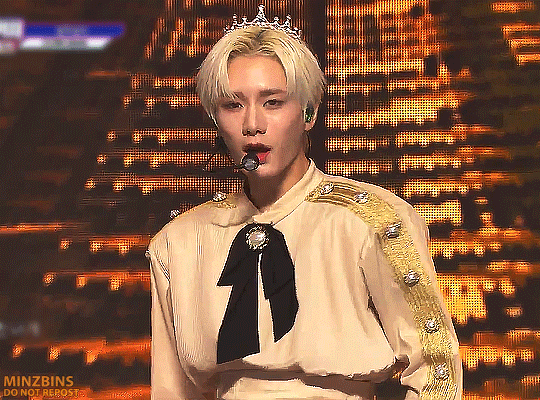
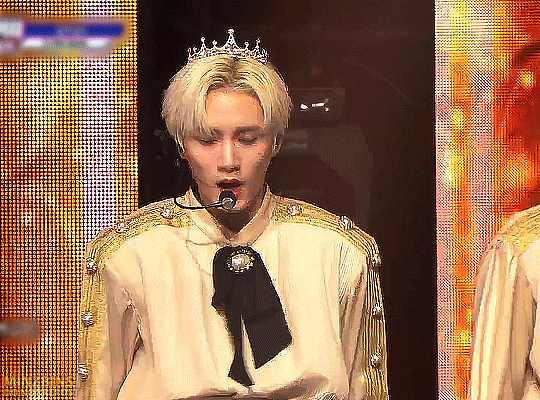

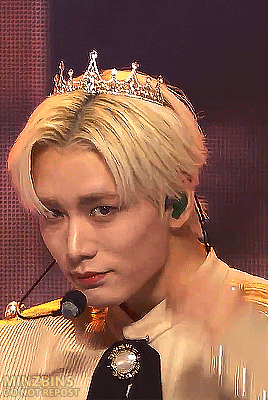
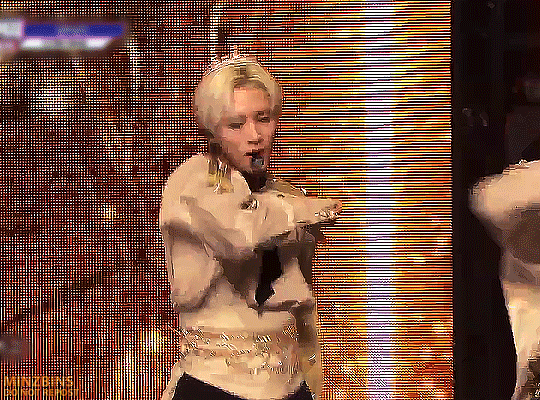
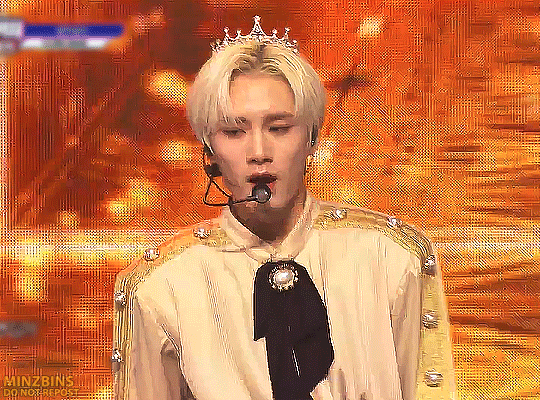
LUNE
Told You / 230830
#dkb#dkbedit#lune#jung sungmin#peaktimenet#kflops#kpopstages#rosieblr#userbeepls#usermairin#simizone#!melstuff#told you#show champion#show champion 230830#flashing tw#my little prince 🥺😭💓
28 notes
·
View notes
Text
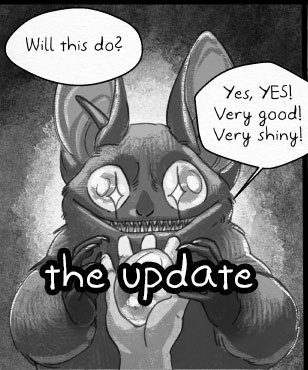
Hi it's been a month
Emerald Nuzlocke chapter 22 part 1 on deviantART
on ComicFury
9 notes
·
View notes
Text
Just saying

I mean both Dream and Hob have me going insane for obvious reasons because 600 years of dates with a stranger and flirting and yadda yadda we've been over this. But I am going equally insane over Dream and Calliope like. The forehead touch????? The Aknowledgement of Growth? The lingering tenderness??
Like obviously, Calliope needs time to heal. A lot of time. Which good cause that's what they all have plenty of. And Morpheus needs time to grow.
If there's one thing Hob is pretty good at — besides the pipe organ and claquettes — it's reading people. So he manages to push reluctant Morpheus to Orpheus's grave and to get Calliope there at the same time (he did so by sending Matthew to tell her Dream is finally ready go talk).
And he just leaves them there as they stand in awkward silence in front of the grave.
Eventually Calliope raises her head. "You wanted to talk?"
And they do. There are a lot of tears. Years of old resentments and bottled up guilt and grief spill out. In the end, though, they are nothing more than crumpled newspapers, burning in a fire place. Maybe they have forgiven each other some time ago.
In the beginning Calliope is weary of Hob – who now wanders freely about the Castle, the Library especially, under the watchful yet kind gaze of Lucienne — Hob Gadling, a man, just like the one that kept her locked up all these years, just like Roderick Burgess who kept Dream in his basement.
Hob seems warm, and it prickles under her skin and makes her uncomfortable, for warmth, for the last hundred years, has been nothing but a tool for humans to get what they wanted out of her.
Oneiros is glacier ice and frozen water from Mount Olympus, the absolute zero of the universe and he expects nothing.
"χαῖρε Hob Gadling, farewell," she tells the man everytime nonetheless, and disappears before he can even open his mouth to speak.
_
Hob starts to write. Because his heart is warm, and he holds so much love he needs to put it somewhere lest it threatens to burst out of him and swallow him whole. He wants to do a little something for his students. Most are like he is, still wandering about, some without the same joy he has. He wants to give Morpheus a gift.
He writes and writes but the right words just won't come, clumsy blotches of ink under his feather (nothing has yet to replace the scrapy feel of the tip of feather on paper). What he is writing about is bigger than what his words can express.
_
When Calliope visits The Dreaming, she takes Morpheus's arm, a gesture of intimacy and trust, and Morpheus inclines his head in aknowledgement and seems nothing but grateful for it. Even from afar, they look regal, a king and a queen wandering about, taking long walks through parts of the Dreaming Hob can only, well, dream about.
Hob watches them as Morpheus bids his goodbyes, kneeling, and softly kissing her hand, reverend. For, once Morpheus has started loving, he never stops.
He usually comes back from these encounters teary-eyed, but light(er)-hearted.
_
Morpheus kisses Hob in the throne room.
Under the scattering light of the stained glass windows, he tilts Hob's head upwards as Hob stands a step beneath him, as they can never be equals, but Morpheus, Oneiros, Dream of the Endless and King of Dreams loves him nonetheless and Hob explodes in colors under the weight of that love. Morpheus kisses him and kisses him until Hob gets dizzy and drops to his knees.
Morpheus looks upon him through half-lidded eyes. Distant, but not unkindly. Above, yet not judging. Not unlike a God standing as an elevated statue in a stone altar in front of a worshipper.
Slowly, Dream removes his cape, the smooth, dark, velvety fabric of the universe gliding across Morpheus's moonlight shoulders. His other clothes are gone in the same swift, movement, and he stands in front of Hob, bare, his unfathomably deep vastness barely held together by the shape of his physical form.
Hob leans his head against Morpheus's thigh, and presses a light kiss there. He rises slightly and presses a kiss on Morpheus stomach.
Gods need worshippers because they are lonely. But it never really helps, does it. So Hob Gadling can not be a worshipper only. He arrives at Morpheus' clavicle. He kisses Morpheus's jaw, as his friend stands there, unmoving. Then, finally, Hob stares Dream of the Endless in the eyes, and he dares.
_
Hob continues to write. He tries to write of colors, of light and dark, of a cold press of lips and sinewy skin, and of the warmth in his belly. Most of the words are botched, and ugly. Some things are missing, things he doesn't dare write about. Because they're scary. Because they're silly.
"May the muses bless my writing this time," he thinks tiredly.
Only the silence answers.
___
The next time Calliope is in front of him, she looks at him with assessing eyes. "You have a question, Hob Gadling."
Hob shifts awkwardly, and scratches his cheek. "I didn't know if, I didn't want—"
"One is always allowed to ask."
"Okay. Well I'm trying to write, you see, and" he laughs, "I have read, many, ohh so many many great things. I want the piece I write" — for him —"to be beautiful, too." He wants it to be perfect. He raises her eyes at her. "Can you help me?"
She gauges him briefly, and Hob is a pond in a glass container. Springy fish play hide and seek between green aquatic plants, rustling in clear waters. There are glistening stones on his shore, that children from there bordering fishermen's town are happy to play ricochet with. Hob is the town, from which laughter and music and dancing is coming from as well.
The thumping from the villager's feet gets louder, and louder, too loud, and Hob realizes, it's the beating of his heart. The villagers's steps are trampling the skulls of the corpses buried deep, so deep under the ground one could almost pretend they were never there. The plants draw their roots in murky waters, fed by the detaching particles of silently decomposing corpses. But the dead are wailing, and refuse to be forgotten. Calliope sees all of him, and Hob gasps when she stops looking.
"Answer is no," she states, then disappears.
Hob sighs and picks up his feather.
___
"I do not understand." Calliope tells Morpheus one time. "He is just like the others."
"He is," Morpheus replies. "They are, all, human."
"What is it he has that holds so much value to you?"
Morpheus considers it. He is silent for a long time. "Time," he answers eventually. "And will. To learn."
Calliope observes the answer in her mind. Humans are like double faced coins. No, like a dôdekáedros, not with two, but with twelve, with thousand faces. Maybe the good ones outnumber the bad, for most.
She nods.
__
She catches Hob writing one time. She waits until he leaves the small wooden desk he has been hunched on for hours, at the warm light of an outdated desk lamp, and can't resist picking up the parchment.
She bursts into laughter, and when Hob comes back and leans against the doorframe, for the first time she looks at him. Really, looks at him.
"This is not very good."
"No," Hob concedes. He does not look offended, simply amused by her own laughter. It had been a long time. "It isn't."
There is a pause, a comfortable one.
"Ask me again," Calliope commands, before she can think about it.
"Uhm," Hob startles, searching her face. She maintains her will, eyes blazing like gemstones.
"Okay," he inhales. "Can you help me?"
"I..." Her chest tightens. It hurts. Still. She hates what Richard Murdock has taken from her. The ability to trust. The ability to give.
"No," she answers, and turns away.
___
Hob goes a long, long time without hearing from her. He hasn't given up on his little project, but the muses have told him no, so he does not ask again.
Hob knows Morpheus sees her though. He reads to Hob stories in Greek more often than not.
___
One day, Hob finds a little note, written in clear letters, a cursive with the reader in mind.
"I enjoy Oneiros's taste, but I do find even his lacking in some areas. You may find hereafter—
It is a note with precommendations. Songs, books, plays, and much, much more.
Sad ones, hopeful ones.
The note ends on,
"Writing requires a great offering.
It requires Truth.
Be honest, Hob Gadling."
___
Hob writes as in a frenzy. He writes anything and everything going through his mind. He writes down his dreams. He writes different endings to his favorite books where everything ends up alright. Painful stories his students have told him. Stories that make no sense at all. When he reads them, he sounds like an overly excited child, and it makes him happy. He is having so much fun.
"You are smiling," Morpheus remarks. He is sprawled lazily in the bed of Hobs tiny Bedroom, only his hair sticking out from the mass of blankets and he has no idea how this makes Hob's heart leap in his chest.
It definitely means "What are you writing?"
Hob knows his stories do not show up in the Library of the Dreaming, Lucienne told him so. Hob lays down his pen and smiles.
"I don't know yet."
___
Hob's home is now as much in the Dreaming as it is in the real world. He has become accustomed to small creatures flying in through the windows, and strange happenings.
Still, when Calliope hums appreciatively from behind him, Hob almost jumps out if his skin. The first time.
Then, it her appearances happen so often he becomes accustomed to it.
Sometimes, her eyes will look like murderous lightning spears, and nothing Hob writes works no matter how hard he tries.
After a three-day-long struggle where she refused to talk to him, he regretfully strikes out entire paragraphs, and starts anew. She smiles at him in approval.
She still can't help him, not really.
But humans have always been able to create on their own.
___
"I liked this one very much," Hob tells Calliope, pointing to a title on the list she has given her.
They are in Napoli, for a work visit supposedly. Hob has a meeting with a wine producer for the his tavern, pub, guesthouse, café, – he really isn't sure, despite being the owne.
Right now, they are seated on the balcony of the AirBnB Hob has rented, and though the owner had seemed surprised to see three people turn up instead of one, he had graciously accepted the change.
And that is how, Hob Gadling finds himself on the balcony, enjoying the warm summer evening, the sun sinking over the vast yet still clear evening sky, and the row of vignes and olive trees on the sandy soils of rocky mountains, and most of all, the company of his wonderful, wonderful friends, Morpheus and Calliope.
The wine makes them lively, and Hob lets himself be drawn in a literary debate with the Muse of Creation he knows he has no chance of winning, while Dream listens intently, for he was never much of a talker.
Hob manages to slip in that Shakespeare was never that good anyway and watched in satisfaction as a horrified expression crosses Calliope's Features, while an amused smile tugs at Dream's lips.
Later, Calliope tells them of her travels through the worlds, uniting her sisters in assemblies, gathering knowledge and experiences to change the unjust laws by which one like her can be bound like property.
Hob and Dream are utterly silent as she talks.
Only the flicker of a candle flame lights their faces when she finishes talking, fierce and angry, and hopeful, and herself.
Hob looks up at her in admiration, as she stands there, blazing with creation, and she looks at him. Morpheus fades into the surrounding darkness, leaving space for the story to unfold.
Calliope pulls Hob Gadling up, plants a brief kiss on his lips — her gift, freely given, finally hers again — and hauls him to the tiny wooden desk on the room, and seats him, his hand next to his favorite fountain pen.
"Pick it up," she orders.
"And now, γρᾰ́φου. Write."
Hob Gadling does.
___
Hob writes the story of a little girl called Naïma who loses the ability to dream.
***
Naïma is 12 years old and 4'2 and has impossibly big dreams like building an airplane that looks like Leonardo Da Vinci's so she can fly, and teaching her sister how to fight with a wooden sword, as she chases the yelling kid around to do just that. Naïma reads a lot of books that feed her colorful imagination, and every night, she has the most vivid dreams, filled with the flutter of bird wings, the scent of flowers after the rain, and magical creatures fighting epic battles.
You're a good girl, Naïma's parents and teachers tell her. Naïma and her friends write stories — that weirdly resemble the latest movie that is all the rage among the kids their age —and it's so easy and their characters are wild and free and flawed and perfect and the stories just pour out of them. Naïma is inspired, and the Muse smiles.
They read each others' stories in awe and they already dream of the day they will get their books published.
Naïma is 16 years old and has big dreams, but she also has a path to walk. Surely if she follows the steps, she will reach the sky and be able to fly with the birds.
Naïma is 18 years old and 5'0 and is so little and in a world that is too wide, and so many voices talk over each other that she forgets the sound of her own. The paths mingle and suddenly she has no idea where to go. She picks one at random.
Her teachers tell her she is clever. She feels like she knows nothing. Along the way, the dreams get lesser and lesser, and the walls on either side of the path get higher and higher, more inescapable.
Naïma writes a poem about rain. "The world is bright," she writes "And I am grey."
Naïma is in her twenties when she loses the ability to dream.
Speaking of walls, there is one behind her called Time, who keeps pushing her forward, not allowing her to slow down and look back. Without dreams, every day is the same, and the rest of her life stretches before her in a bleak, empty nothing. She lays in her bed staring at the starless ceiling, thinking "is this really all there is?" And "If it is so, doesn't Death seem kinder than life?"
***
Hob briefly sets the pen down, his hand trembling. He goes to the kitchen and makes himself a cup of tea. He breathes out, taking in the cool air of the night. Dream is sleeping in Hob's – their — bed, or something close to sleep, as far as Hob can tell.
Calliope is nowhere to be seen, but Hob feels this unrest, this trepidation in his fingers and push to keep going, the need to empty his mind and spill all his thoughts onto the page lest he is driven insane. He sets his cup down onto the desk — his hand now more or less steady —, and grabs the pen once again.
***
Death stands before Naïma, maybe in a dream, maybe not, and smiles upon her kindly. She seems fair and just, exactly like Naïma had pictured. The shadow of her wings grows and stretches until it is all encompassing behind her, eclipsing the sun.
"Do you want to go?" Death asks, and her voice is kind, but it is absolute.
Naïma hesitates, shifts on her feet. But this is weird. "I didn't think we had a choice in the matter?"
"Well, it's not your time yet. So you do."
Naïma lowers her eyes. "I..." Death gauges her carefully. "I don't know."
Death gives her a minute, but Naïma doesn't come up with another answer.
Death smiles, as if Naïma had somehow come up with the right answer and her wings are gone and the sun is visible again, and she takes Naïma's hand. "I need to show you something."
A flutter of wings and they are in a dark room, no, not not room. Space. For there are no borders. No floor Naïma is walking on. No walls. In the center of the space, are square, vertical panes, each the size of maybe four records, set up vertically next to each other, forming a a circle. A circle of these glass slices, floating. As Naïma gets closer, she can discern shifting patterns of colorful smoke inside of each square, pinks and blues and aquamarines.
"Pick one," Death tells her. Naïma looks at her, uncertain, but Death just signals her to go ahead.
So Naïma extends her hand, slowly approaches her fingers and, as they come in contact with it... colors explode everywhere, and the space expands and she finds herself in a nebula of holographic colors and glistening stars.
"Whoah," is all she can say. "What is that?"
"He, is called Laurent." Death introduces him "She spreads two of her finger and zooms in on a spot of the nebula, as one would navigate a touch screen. "This is his love for gardening. This here?" A particularly bright star. "His favorite meal. This?" She points to a black hole. "His mother's death." Next to the black hole is a ring of light. "He rekindled with his sister and met his niece. She remained the joy of his life, for the entire duration of it.
"These," Death double taps the nebula, and it folds in on itself as if sucked into a vacuum, back into is original square shape and place among the others. "These are all the people that have lived. Are living."
Death presses on one and once again, colors spread across the room. "This is the one of a man called Hob Gadling."
Where the other had had one or two dominant hues, this one had all the colors of the rainbow. It also had darker—
***
"Writing about yourself? Slightly pretentious."
"Jesus Christ," Hob jumps. Maybe not that accustomed to Calliope sneaking up in him after all. "You scared me. Could you, could you not look? This time? It's" He scratches this cheek and chuckles. "Embarrassing."
"I will know it all the same," Calliope answers.
"Is all of this yours?" Hob deflates. "Do you know everything I'm going to write?"
"It is as much yours as it is mine," Calliope answers. "And I cannot know until it is written.
Keep going, Hob."
***
This, glass panel had all the colors of the rainbow— more colored than any of the panels Naïma could see. Some of the colors were uglier. Less harmonious. Some were darker.
Death swipes the color palette away and Naïma stiftles a cry, as she could have kept looking for an eternity, but Death is already opening another.
"Now this one, my sweet, sweet girl, this one is yours."
Naïma flinches, and turns her head away. Death waits, patient, encouraging.
Naïma forces herself to look.
And, of course.
Her color palette is... unremarkable. Unfinished.
There are tiny specks of color, that look like nothing much really. It could have been pretty, once, but the rest of the painting distracts because... "There is absolutely nothing here," Naïma gestures, and she cannnot hide the disappointment. Compared to the other ones, this one was... Not enough. Her life was no good.
"It's empty." This was same black she saw every night in the corner of her eyelids when she pictured the future. She didn't need to be reminded of that.
Death shakes her head. "It's not," and she punctuates the word, "empty, silly." She flicks Naïma's forehead. "Quite, the contrary actually. It's full. With potentialities. Endless potentialities. Who knows which color you are going to put on there tomorrow?"
And Death gives her a minute to let that sink in.
"I'm going to ask you again, Naïma Goldenberg. It is not your time. Do you still want to go?"
"No," Naïma shakes her head. "No I don't think I want to."
Death smiles. And behind her, someone else, a man with pale skin, huddled in a dark cape, smiles as well.
***
Dream stirs slightly. He seems content. A good dream, hopefully.
***
Naïma wakes up to her dark ceiling. She pastes glow stars on it and turns on her bedside lamp, and suddenly it's not so dark anymore.
She can't dream but she realizes, she can read. She grabs the first book on her shelf, and suddenly Naïma is twelve again.
A year goes by. Naïma hasn't found her dreams but she keeps searching. She reads books that make her feel like she's dreaming and fill her waking life, listens to stories that people are eager to tell her. She fills her life with the dreams of others, and even tries some of them out, like slipping on a different gowns. Today she is Naïma the rock climber, nature conqueror who sleeps in a tent – she gets a cold, and finds slugs in her clothes. Yesterday she was Naïma the fancy, mingling with some high-society people, laughing along with them in her glistening champagne and feeling like this dream didn't fit her at all. The day before that? She had been Naïma the poet, reading books in a warm-hued Café enjoying a scone and a cappuccino, while occasionally gazing at the raindrops splattering on the window and on the pavement outside.
She learns more about herself. Or re-learns really. She learns that she loves rain and books, that she likes rock-climbing occasionally, and with friends, and that she really hates sparkling events where people talk too loud. That she really likes listening to stories. She likes writing stories too.
Naïma is thirty when she falls in love with a girl called Ζωή that is completely wild and colorful. Zoé loves with all her heart and crashes deeper and flies higher and takes Naïma with her.
***
Hob writes of music. He writes of laughter, he writes of pain, he writes of joy. He writes of a desire to do better.
***
"Goldenberg." A voice she has known forever, a voice she had missed, calls to her.
And finally, Naïma dreams.
She dreams of which songs, which plays, which adventures Zoé will show her tomorrow. She dreams of magic. She dreams of writing a book.
***
Hob writes and there is space between the lines of his love that needs to be filled.
Until the morning hours, Hob writes alongside Naïma. He fills the path she takes with new Dreams, new Stories, and that is how she paves her way until she meets Death again, in due time. (Not everyone can be like Hob, not even his characters).
For Dreams, Stories, and Art, Hob has found, is what makes it worthwhile everyday, to live for another.
That, alongside the smell of freshly baked bread, wine that is warm on the tongue, and the smile of a friend.
.
Smile, his friends do, when months later, he hands each of them a copy of the finished book he has bound himself.
Some threads hang loose from the cover and he is pretty sure that — despite his best efforts — some spelling mistakes are left in, and it is far from perfect, but it's done, and it's his.
"It has been a long time since anyone wrote a song for me," Calliope speaks, eyes glistening.
"The Library, will be honored."
Thank you, Hob Gadling, they both tell him.
_
The book is called "Ζωή."
The book is called Life.
#told you#this got out of hand lol#the sandman#dream of the endless#hob gadling#calliope the sandman#the sandman netflix#very long ass fucking post#writing#long post#i mean this was supposed to be a meme y post#text was barely two paragraphs long and just like how calliope and hob and dream would be in italy discussing plays#and ranting over shakespeare lmfao#☑️ task failed successfully#dream x hob#dreamling#dream x calliope#calliope x dream x hob#is that a thing?#it's not a thing apparently#well now it is#dream x hob x calliope#hob x dream x calliope
126 notes
·
View notes
Text
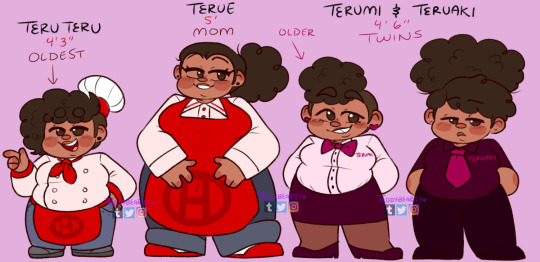
The Hanamura Family ❤️
#danganronpa#danganronpa 2#super danganronpa 2#sdr2#teruteru hanamura#mamamura#mama hanamura#told you#been in a teruteru headspace recently#that includes designing his sibs#and I love them#yall wanna know more about them?#ya gotta ask lol#danganronpa ocs#teruaki hanamura#terumi hanamura#teddy's artwork#teddy's art#digital art
122 notes
·
View notes
Text
wait. prime s3's out now??? hang on
#my posts 🌌🦑#god im gonna have to take a break from tumblr for like a week until the shippers chill out again arent i#anyway based off of the spoilers i've seen my theory was RIGHT#i fucking knew it. i FUCKING knew it.#told you
2 notes
·
View notes
Text
rip james potter you would’ve loved The Lightning Seeds
#yes bringing this thing back#go youtube Pure by the lightning seeds and tell me that’s not james core#i’ll wait#TOLD YOU#james playing that for reg LISTENNN#ugh i love him (them)#also that band just slaps?? their music is so good i love them sm#marauders#james potter#jegulus#the lighting seeds band#asher says :)
3 notes
·
View notes
Text
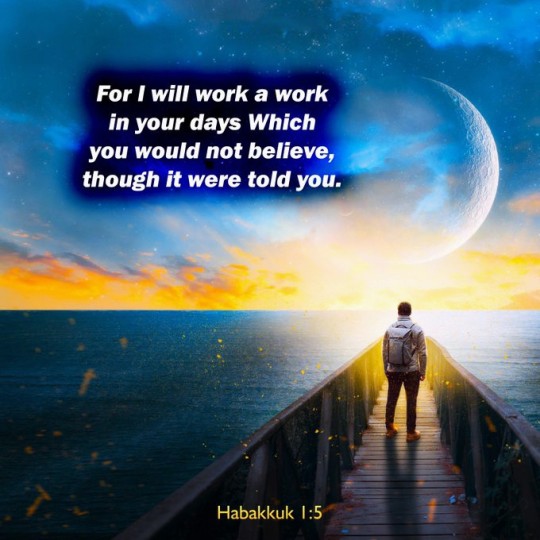
Habakkuk 1:5 (NKJV) -
“Look among the nations and watch—
Be utterly astounded!
For I will work a work in your days
Which you would not believe, though it were told you.
35 notes
·
View notes
